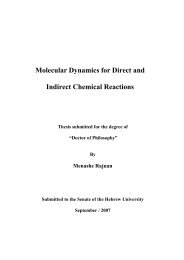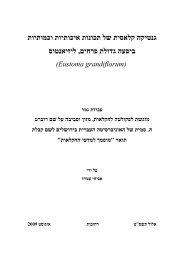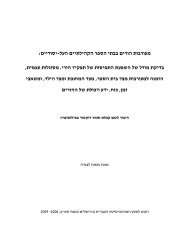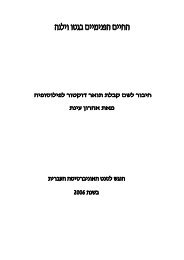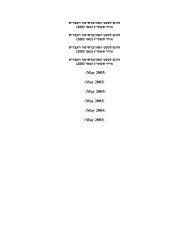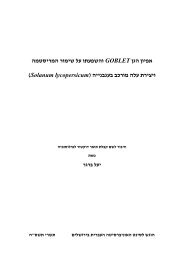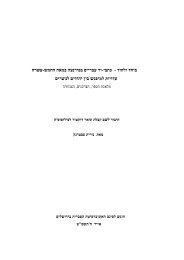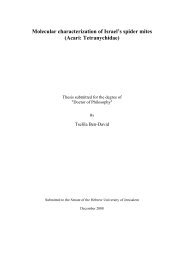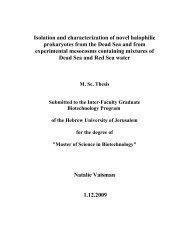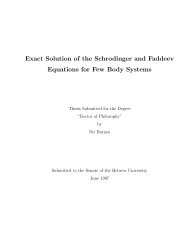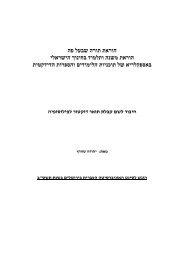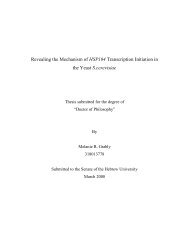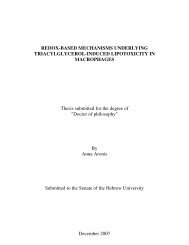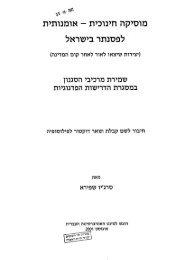××ר×ת ס×פ×ר ×× ×¡ ××קר×× ×××× ×× ××××××ª× ××שר×× - ×××× ××רס××× ××¢×ר×ת ...
××ר×ת ס×פ×ר ×× ×¡ ××קר×× ×××× ×× ××××××ª× ××שר×× - ×××× ××רס××× ××¢×ר×ת ...
××ר×ת ס×פ×ר ×× ×¡ ××קר×× ×××× ×× ××××××ª× ××שר×× - ×××× ××רס××× ××¢×ר×ת ...
Create successful ePaper yourself
Turn your PDF publications into a flip-book with our unique Google optimized e-Paper software.
have been articulated, through a process that Schwab calls "problemation", the<br />
curricular team looks for a theory or theories that can help guide educational decisions<br />
regarding the contents, goals, and means of the new curriculum. The problemation<br />
process demands that representatives of all the factors involved in education meet<br />
and reflect upon the shortcomings of the specific situation, and upon possible<br />
solutions. Schwab calls these factors the "commonplaces" of education: the subject<br />
matter, the teacher, the student, and the milieu. Each representative must present the<br />
needs, concerns, problems and issues that beset his/her domain. A curriculum expert<br />
presides over the deliberations that take place, and ensures that the deliberative<br />
process be carried out in an open and egalitarian fashion.<br />
While Schwab advocates a deliberation where people exchange ideas in a face-toface<br />
encounter, it has been demonstrated that this approach is impractical. Therefore,<br />
educational scholars have suggested substituting a deliberation "on paper" for a real<br />
one, where ideas can be discussed and compared through writings. This approach has<br />
been applied to educational deliberations in the fields of Bible, literature, midrash,<br />
and Talmud, and we have adopted it in our study. We will now present the<br />
deliberative process in the order in which it is carried out in this dissertation,<br />
regarding the teaching of biblical miracle stories in the mamad.<br />
The Development of the Thesis<br />
Chapter 1: In this chapter three of the four commonplace representatives put forth<br />
their findings and dilemmas. According to the representative of the students, most of<br />
the students in the mamad read biblical miracle stories literally, but there is a certain<br />
segment of this population that does not feel comfortable with this kind of reading,<br />
and questions the validity and meaning of these stories. Even for "believing" students,<br />
312



